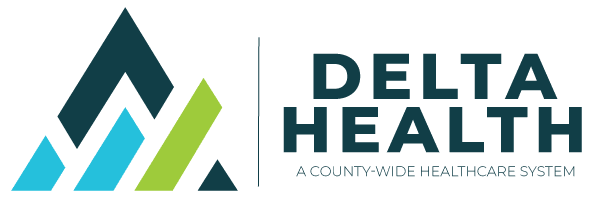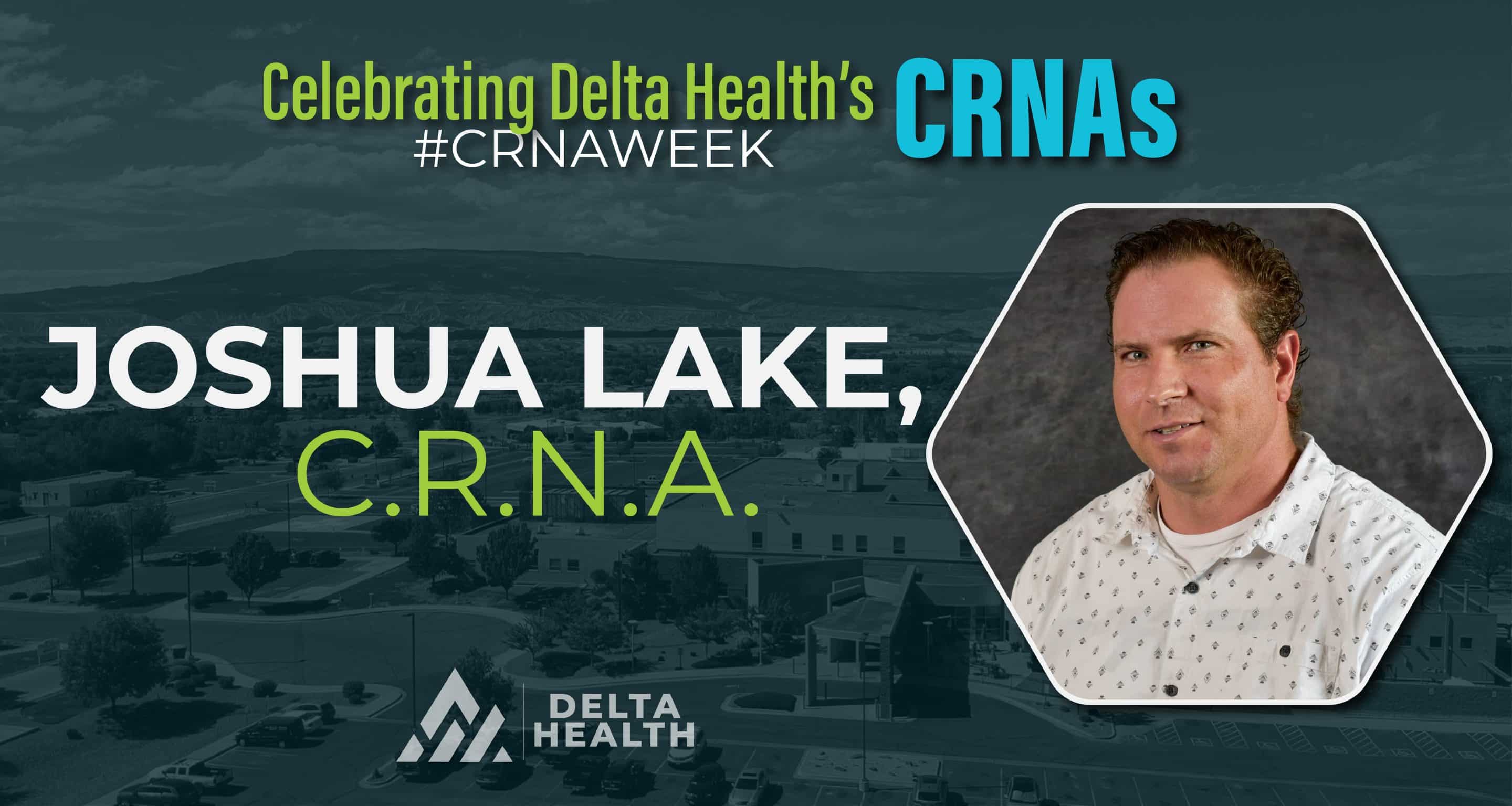CRNA Month: Q&A with Josh Lake, CRNA
Q: WHAT/WHO INSPIRED YOU TO PURSUE NURSING AS A CAREER?
A: I have many nurses in my family. I learned from them that there are many career paths for nurses and that it is a stable career path with opportunities everywhere. I enjoyed health and fitness and learning about human physiology. I decided that a career in health care is where I wanted to focus my education. Naturally, with nurses around the family, their influence guided me.
Q: WHAT/WHO INSPIRED YOU TO PURSUE AN ADVANCED DEGREE IN NURSING?
A: My older brother is a CRNA. I knew that I wanted to push my education and practice to a high level. Advance practice nursing is broad, with opportunities in nearly every area of health care. So I decided to follow the same path.
Q: HOW DID YOU DECIDE UPON YOUR SPECIALTY FIELD?
A: As I mentioned before, my brother is a CRNA. Having heard from him about his experience and his overwhelming satisfaction as he described what a CRNA does, I decided that it sounded pretty neat. I have always enjoyed helping people and felt that being an anesthesia provider would be a good way to do that. After looking into the profession I found that CRNA job satisfaction typically ranks in the top 5 to 10 of all careers in the US and the favorable salary potential, I decided that I would go for it.
Q: GIVEN YOUR SETTING AND ROLE, WHAT ARE SOME OF YOUR PRIMARY ACTIVITIES ON A TYPICAL DAY?
A: As a CRNA in a hospital setting, I evaluate and assess surgical patients’ health status and readiness for anesthesia. I consult with the patient and surgeon to determine the appropriate method of anesthesia that is safest for the patient and provides the best conditions for the surgeon to accomplish the proposed surgery. During surgery I am tasked with keeping the patient safe while maintain anesthesia. I will monitor and assess vital signs and anticipate potential problems and treat them in order to maintain safety. I also maintain care and oversee the patient in the recovery process until discharge. We treat perioperative pain and complications and or side effects of anesthesia throughout the recovery process.
Q: WHAT HAVE BEEN YOUR BIGGEST CHALLENGES THUS FAR IN YOUR ADVANCED NURSING CAREER?
A: The most challenging experience for me has been the transition from being a new provider in a physician-supervised anesthesia care team to an independent CRNA practice.
Q: FUTURE GOALS FOR ONGOING LEARNING:
A: I plan to continue to stay up to date on new and exciting anesthesia techniques and strategies to elevate my knowledge. I have set a goal to attend at least one conference a year for the rest of my career as a CRNA.
Q: Where are you from originally and how did you end up on the Western Slope?
A: I grew up in Castle Dale Utah. I had been looking for opportunities to live in the west in general. I wanted to find a place to settle that would provide a lifestyle similar to where I grew up and lived for the most of my life. I also had wanted to be closer to family. I began looking for employment opportunities in the spring of 2020 and found Delta County Memorial Hospital.
Q: Tell us more about your specialty and being a CRNA.
A: We provide anesthesia services for the entire facility. Many don’t realize that we are often called to the ED to help with traumas, intubations, diagnostic lumbar punctures and even acute pain consults. We provide anesthesia for OB patients and occasionally provide sedation in radiology. We also help in the ICU when called on for intubations and central line placement. We are busy helping wherever needed.
Q: What is your care philosophy when it comes to your patients?
A: Most patients don’t get to meet their CRNA until the day of surgery. Besides the surgery itself the anesthesia is the number one concern for a patient. I strive to provide my patients with a calm demeanor and confidence that will put their mind at ease. As far as the anesthetic is concerned, I work to provide care that is tailored to what the patient needs, taking into consideration their health status and the surgical procedure. I want them to have the best experience possible throughout their perioperative process.
Q: Why rural healthcare and what do you love most about it?
A: I enjoy the smaller setting because you work with the same people on a daily basis. This helps to promote a team mentality. In a larger setting it is difficult to develop a cohesive atmosphere that is possible in smaller setting.
Q: What do you love about working at Delta Health and with the team here?
A: I love working here because the group of CRNAs we have collected here. We have such a great group! I also enjoy the OR team and our PACU/ preop nurses. They are all a joy to work with. They all make working here a pleasure.
Q: What made you decide to become a CRNA? Tell us the story.
A: I began my adult life working various construction jobs and thought I had settled on being an electrician. I had been fortunate to work through a couple of winters without being laid off but that luck ran out and I had grown tired of the nature of construction work. I had a wife and 2 children at the time and I was not sure how I could continue. I had 2 years of the electrical apprentice program under my belt. That made the decision difficult because of the time I had invested but I also knew I wasn’t happy and probably would never be. I had been entertaining the idea of getting into health care. Initially, I thought about going to med school but realized how much time and sacrifice that would take from my family. This was about the time my older brother had finished CRNA School and had begun to tell me about his experience. The timing was just right for me to hear this and I had my mind set on becoming a CRNA.
Q: Tell us more about your home life: any hobbies, things you enjoy doing on the weekend? Family, children, pets?
A: I have a wife and 3 children. Two boys age 20 and 19 and a daughter who is 13. We like camping and hunting.
I really enjoy elk hunting, mostly archery. Archery hunting has spawned an obsession with archery.


